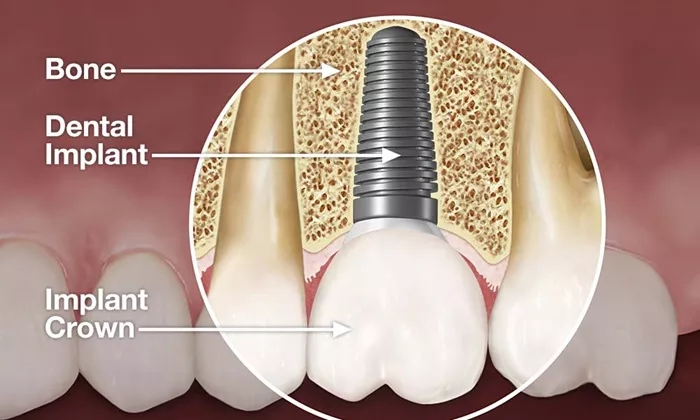Dental implants are a popular and effective solution for replacing missing teeth. However, patients often wonder how long these implants will last. The lifespan of dental implants is not a fixed number and can be influenced by a variety of factors.
Understanding these factors is crucial for both dentists and patients in order to manage expectations and ensure the long – term success of the implant treatment.
Factors Affecting the Longevity of Dental Implants
Implant Quality
The quality of the dental implant itself is a fundamental factor. High – quality implants are typically made of biocompatible materials such as titanium or titanium alloys. These materials are chosen for their ability to integrate well with the body’s tissues, specifically the bone. Implants made from inferior materials may be more prone to corrosion or mechanical failure over time. For example, if the titanium alloy used has impurities or is not processed correctly, it may not be able to withstand the forces exerted during normal chewing and biting.
Osseointegration
Osseointegration is the process by which the implant fuses with the bone. Successful osseointegration is essential for the long – term survival of dental implants. This process can be affected by various factors. The initial stability of the implant at the time of placement is crucial. If the implant is not firmly seated in the bone during the surgical procedure, it may not integrate properly. Additionally, the quality of the patient’s bone also plays a role. Patients with healthy, dense bone are more likely to have successful osseointegration compared to those with osteoporosis or other bone – related disorders.
Oral Hygiene
Maintaining good oral hygiene is vital for the longevity of dental implants. Poor oral hygiene can lead to the development of peri – implantitis, which is an inflammation around the implant. Plaque and tartar buildup can cause bacteria to accumulate around the implant, leading to infection. This can gradually erode the bone surrounding the implant and loosen it over time. Regular brushing, flossing, and using appropriate mouthwashes are necessary to keep the implant area clean and healthy.
Biting Forces
The amount and type of biting forces exerted on the dental implant can impact its lifespan. If a patient has a habit of clenching or grinding their teeth (bruxism), it can put excessive stress on the implant. Over time, these excessive forces can cause the implant to loosen or even break. Dentists may recommend the use of a night guard or other measures to protect the implant from such abnormal biting forces.
Patient’s General Health
The patient’s overall general health can also influence the longevity of dental implants. Conditions such as diabetes, which can affect the body’s ability to heal, may pose a risk to the implant’s long – term success. Uncontrolled diabetes can lead to poor blood circulation and a compromised immune system, which can slow down the osseointegration process and increase the likelihood of infection around the implant. Similarly, patients with autoimmune diseases may have a higher risk of implant failure due to their altered immune responses.
Expected Lifespan of Dental Implants
Short – Term Success
In the short – term, if all the factors mentioned above are favorable, dental implants can be expected to function well within the first few years. For example, in the first 1 – 2 years, if there are no signs of infection, loosening, or other complications, it indicates a good start. This is often due to the successful osseointegration that occurs during this initial period.
Medium – Term Performance
Looking at the medium – term, which can be considered as 3 – 5 years, continued success depends on the maintenance of oral hygiene and the absence of any major changes in the patient’s biting habits or general health. If the patient continues to take good care of the implant and there are no significant external factors affecting it, the dental implant can remain stable and functional. However, during this time, some minor issues may start to develop if there has been any lapse in oral hygiene or if the patient has started to develop bruxism.
Long – Term Survival
In the long – term, which is typically 5 years and beyond, many dental implants can still be in good condition. But this requires strict adherence to all the necessary precautions. Some dental implants have been known to last up to 10 years or more in patients who have excellent oral hygiene, healthy bone density, and no significant general health issues. However, it is important to note that individual cases can vary widely, and regular dental check – ups are essential to monitor the implant’s condition and address any potential problems early on.
Importance of Regular Dental Check – Ups
Regular dental check – ups are crucial for the long – term success of dental implants. Dentists can detect early signs of problems such as peri – implantitis, loosening of the implant, or changes in the bone around the implant. Through techniques such as X – rays and clinical examinations, they can assess the implant’s health and take appropriate action if necessary. For example, if there is a small amount of bone loss detected early, measures can be taken to reverse it, such as improving oral hygiene instructions or providing additional treatment to strengthen the bone.
Conclusion
In conclusion, the longevity of dental implants is influenced by multiple factors including implant quality, osseointegration, oral hygiene, biting forces, and the patient’s general health. While they can last for many years with proper care, regular dental check – ups are essential to ensure their long – term survival and the continued oral health of the patient.
Related topics:

